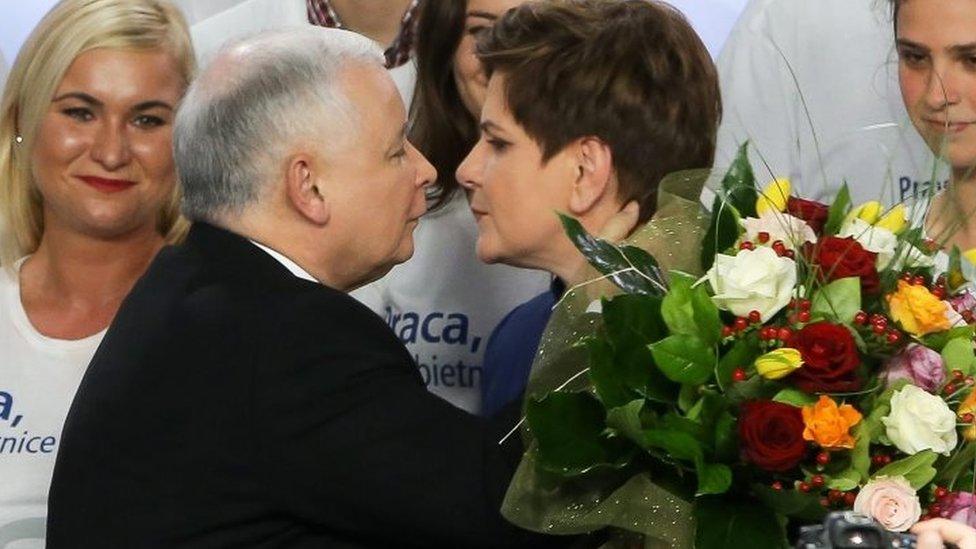EU ready to fight Polish media law amid row over values
- Published
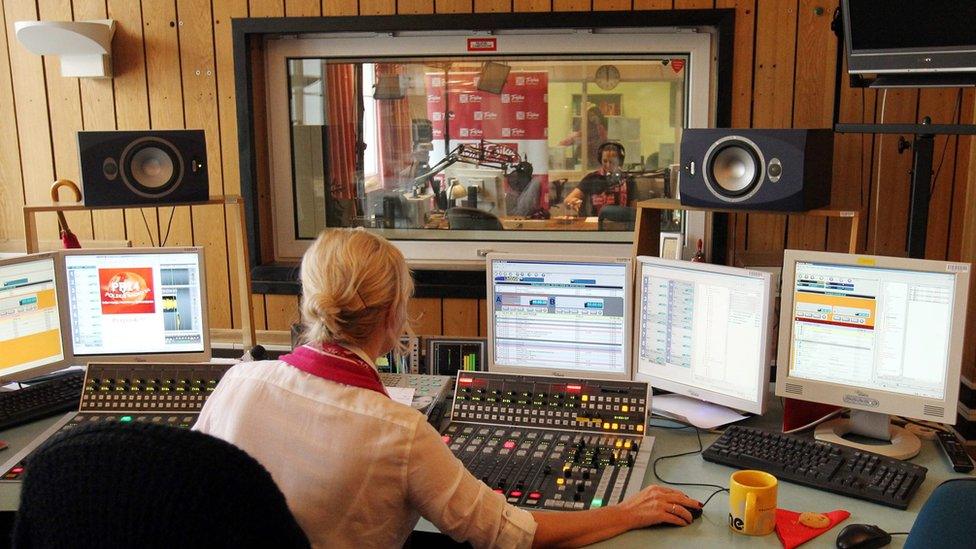
A Polish public radio studio: The law has ignited fears of political meddling
A senior EU official has threatened legal action against Poland's new conservative government over its controversial media law.
The EU Commissioner for the Digital Economy, Guenther Oettinger, said: "There are solid grounds for us to activate the rule of law mechanism and put Warsaw under monitoring."
Polish MPs have approved a law giving the government direct control over top appointments in public broadcasting.
It undermines free speech, critics say.
In an interview with Germany's Frankfurter Allgemeine Zeitung (FAZ) newspaper, Mr Oettinger said he would raise the Polish media law issue at a meeting of the Commission on 13 January.
Under the EU's rule of law mechanism, external, adopted last year, the Commission can escalate pressure on a member state to amend any measure that is considered a "systemic threat" to fundamental EU values.
In the last resort, a state's voting rights in the EU Council - where government ministers shape EU policy - can be suspended. The Commission is the EU's top regulator, enforcing EU treaties.
On Saturday the directors of four channels of TVP - Poland's public service television - resigned in protest at the new law.
The Polish news website Dziennik named them as: Piotr Radziszewski (TVP1), Jerzy Kapuscinski (TVP2), Katarzyna Janowska (TVP Kultura) and Tomasz Sygut (Television Information Agency).
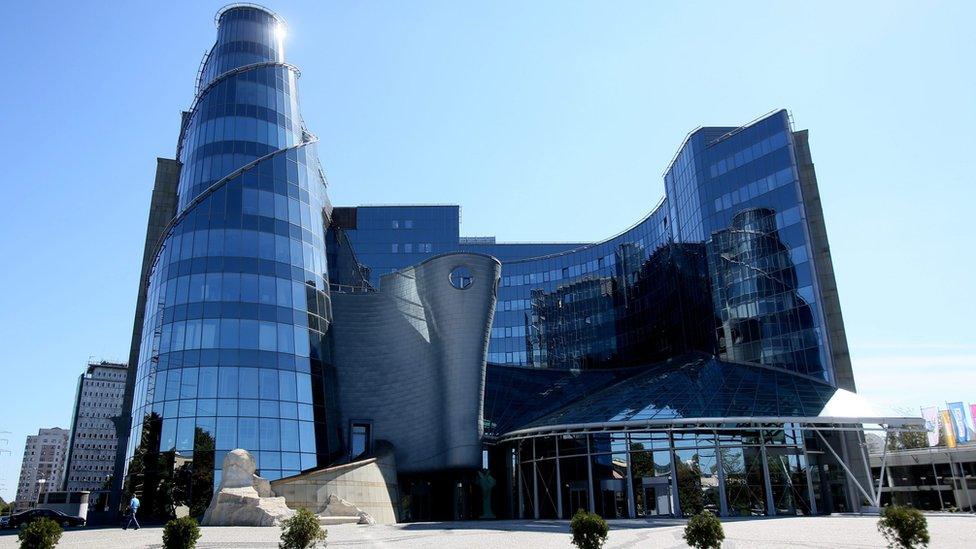
TVP headquarters: Most Poles watch the broadcaster's output
The media law has not yet taken effect - but President Andrzej Duda, an ally of the ruling Law and Justice Party (PiS), is expected to approve it this week.
New managers
Media watchdogs in Europe have voiced alarm about the media shake-up. It will put TVP and Polish Radio - which have a huge audience - under the control of a new national media council close to the ruling PiS.
Current media regulators will be replaced, and the treasury minister will exert direct control over the public channels' managers.
The public broadcasters will be re-designated as "national cultural institutes".
The PiS says new managers are needed at the top of state institutions because the previous centre-right Civic Platform party allowed corruption to flourish.
The PiS is also Eurosceptic, firm on traditional Catholic values and committed to increasing social welfare spending.
Comparisons have been made with Hungary, whose conservative Fidesz government also clashed with the EU Commission over human rights.
TVP has two main national channels, and operates regional services and the satellite network TV Polonia.
Public Polish Radio reaches just over half of the population, with four national radio stations and 17 regional stations.
Last week Poland also introduced controversial changes to its constitutional court.
A new law requires the 15-strong court to reach a two-thirds majority with at least 13 members present, in order to pass most of its rulings. The PiS also appointed five judges to the court.
Critics say the changes will undermine democratic checks and balances.
- Published30 December 2015
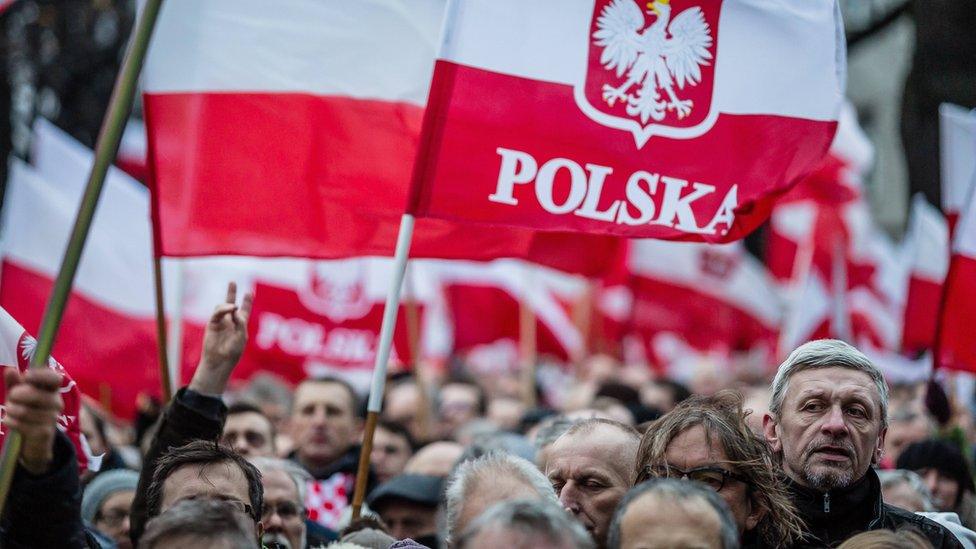
- Published28 December 2015

- Published26 October 2015
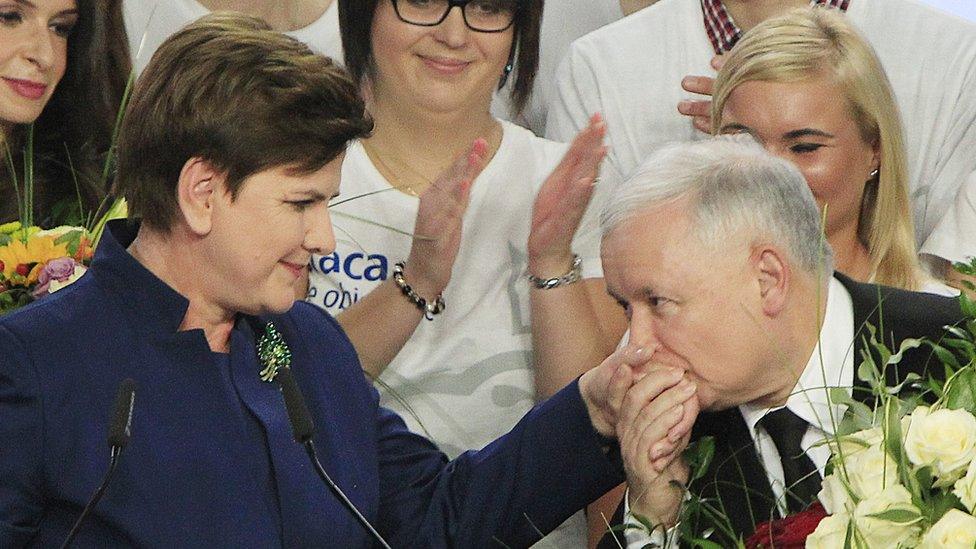
- Published28 March 2023

- Published27 October 2015
